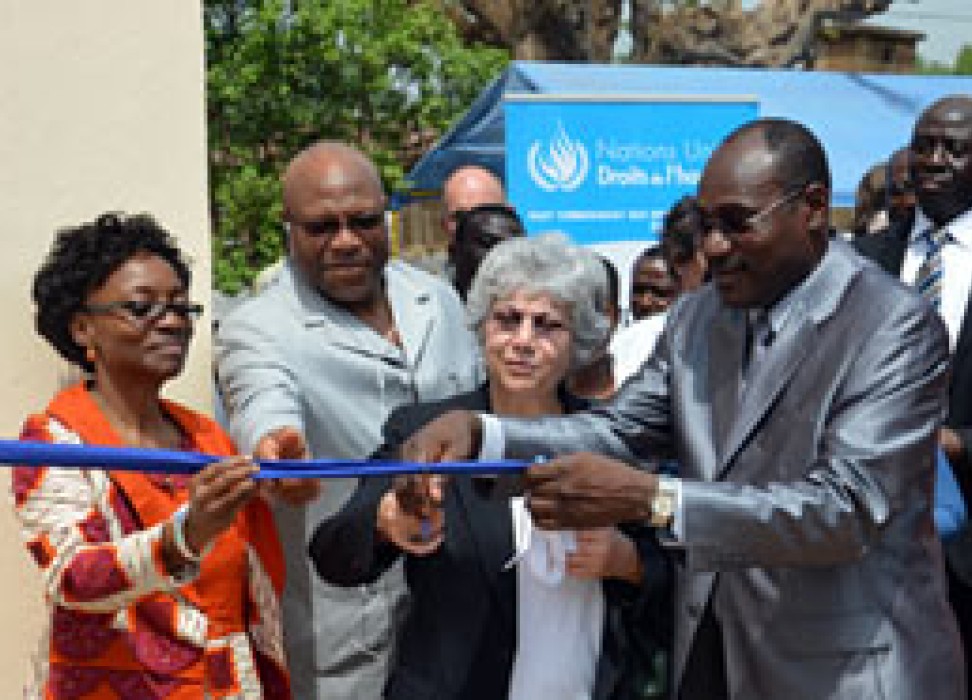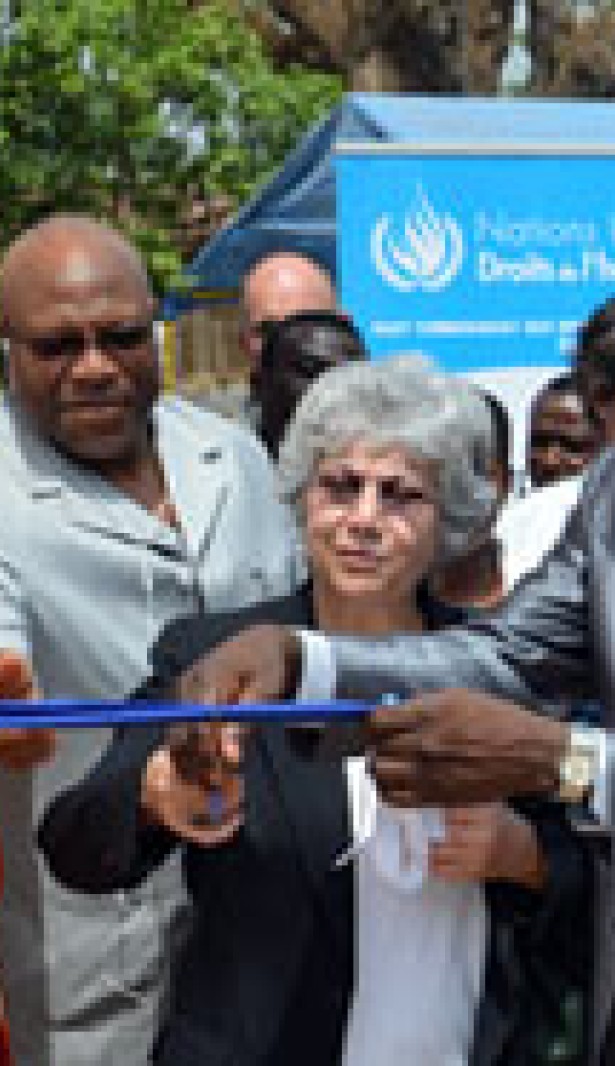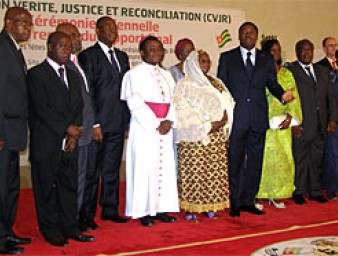Togo: The road towards human rights
11 September 2015

“During my detention I was confined into a cell. The conditions were a 4 by 6 meters cell and barely 2.5 meters high. It was not well ventilated and, as you can imagine it was so hot, sometimes we were more than 20 people…,” says Atchole Kao.
Kao is a former soldier. He was accused of taking part in an attempted coup in 2009. He says he was arrested and detained for two years without trial under inhumane conditions.
He has always maintained his innocence.
With the advice and assistance of the UN Human Rights Office in Togo, he was freed and sought legal redress beyond his country’s borders, at the ECOWAS Community Court of Justice, based in Nigeria. A ruling by the court ordered the Togolese government to compensate him and others for torture, inhuman and degrading treatment.
Atchole said: “As a result of the report we received compensation and the judicial process went faster, there was a ruling by the ECOWAS court. Thanks to the report we got compensation and that is how I was able to buy this place and assist my family.”
He received about 6,000 US dollars from the government. And an earlier prison sentence by the local courts was quashed because he had already served time without trial.
Earlier in 2005, violence marred the election leaving about 800 people dead. This prompted international action and a United Nations inquiry known as a fact finding mission. It was tasked to investigate the scale of human rights violations in Togo. One of the key recommendations of the inquiry was a call to establish a UN Human Rights Office in the country. This was established in June 2006.
Olatokunbo Ige, the then head of the UN Human Rights Office in Togo explained what the Office was tasked with: “To help the government to face some of the difficult issues that they themselves, maybe as at 2005, were not willing to face, some of the issues around impunity, for example, some of the issues in the recklessness in the administration of justice.”
A decade later the journey towards democratization and the respect of human rights is on course.
Monitoring human rights during electoral periods was a starting point.
Tensions were high again in 2009 during an alleged attempted coup which led to massive detentions of military and civilians, such as Kao’s. Togo has had its share of human rights violations and embarked on a long road towards addressing impunity among other violations.
The justice system in Togo continues to undertake reforms. To strengthen the administration of justice in the country, the UN Rights Office engaged the judiciary in various training programmes, including drawing up a code of conduct for magistrates - the Office was instrumental in this process, an effort that was lauded by the Supreme Court President, Patrice Gamatho.
Gamatho said:“The justice system mirrors the situation in a country. It’s a window that allows governments to peak into in order for investors to come to our country, they are also interested in how the judiciary functions. For a while now, with the support of the UN Human Rights Office, we are setting ethical standards in the Togolese justice system.”
The UN Human Rights Office also supported a three-year transitional justice process that saw the set-up of a truth and reconciliation commission – which is due to implement its recommendations that mainly address reparation of victims.
Almost ten years since the setup of the Office, the UN Human Rights Office has closed shop in Togo. There were feelings that the closure created a big gap. But at the same time its impact has been widely felt.
Recently, the Togolese voted in a presidential election that was described by the regional West African bloc, the Economic Commission of West African States (ECOWAS) as peaceful and fair.
11 September 2015


